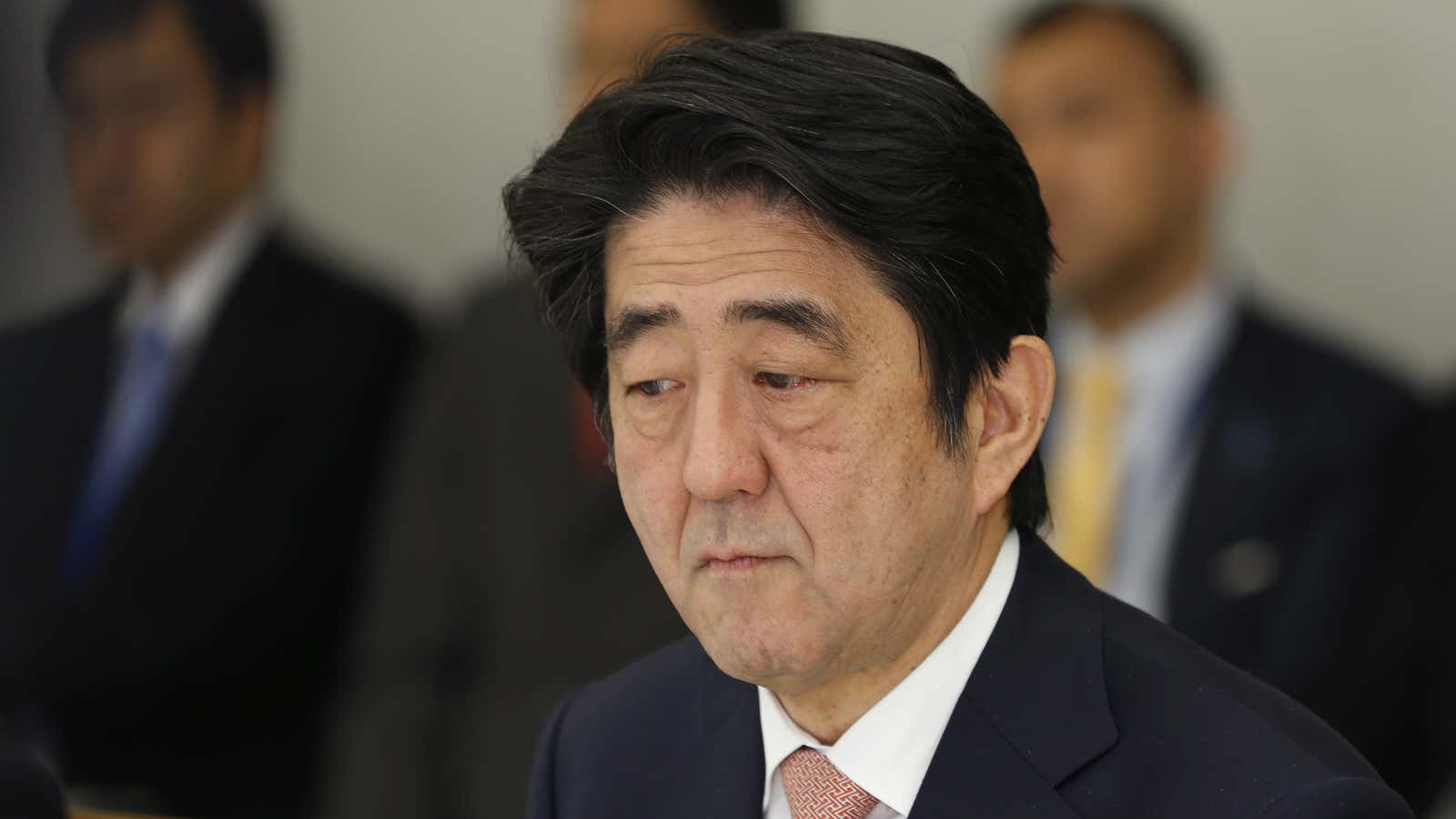Japan’s government is running out of time. A Friday deadline looms for demands made by the Islamic State, which says it will kill two Japanese hostages if it doesn’t receive a $200 million ransom payment. That’s the same amount of aid that prime minister Shinzo Abe pledged to countries that are battling ISIL during a Middle East tour last week.
Government spokesman Yoshihide Suga told reporters today that Japan was trying to tell ISIL that its ransom demands were due to a “misunderstanding,” since the aid was designated for refugees and humanitarian programs, not to kill Muslims, as the group has claimed. “We are sending the message that, contrary to what the criminals are saying, we are absolutely not trying to kill people in the Muslim world,” Suga said.
The two men being held captive are freelance journalist Kenji Goto and security contractor Haruna Yukawa. Reuters reported that Yukawa was a “troubled loner” who went to Syria as “part of an effort to turn his life around after going bankrupt, losing his wife to cancer and attempting suicide.” Yukawa was captured in August, and his friend Goto returned to Syria in October to save him.
With less than 24 hours left before the ultimatum expires at approximately 2:50pm Friday, Tokyo time (12:50am ET), Japan says it has yet to even establish contact with ISIL. That’s despite the fact that it was first informed of the kidnapping by the wife of one of the hostages in November, after she was first notified by the Islamist militants that they had captured her husband. Japanese media reported that the group first requested a smaller ransom in early January, before it issued a video with the $200 million ransom demand this week.
Japan’s ministry of foreign affairs, which dispatched its second-ranking official to Jordan to coordinate the government’s response, also issued a statement on its Facebook page, in both English and Arabic, saying that “such an act of blackmailing through holding the innocent lives as hostage is utterly impermissible, and we feel strong indignation.” The government has avoided answering questions about whether it would pay the ransom, saying only that “Japan will not give in to terrorism, and our position of contributing to the counter-terrorism efforts by the international community remains unchanged.”
